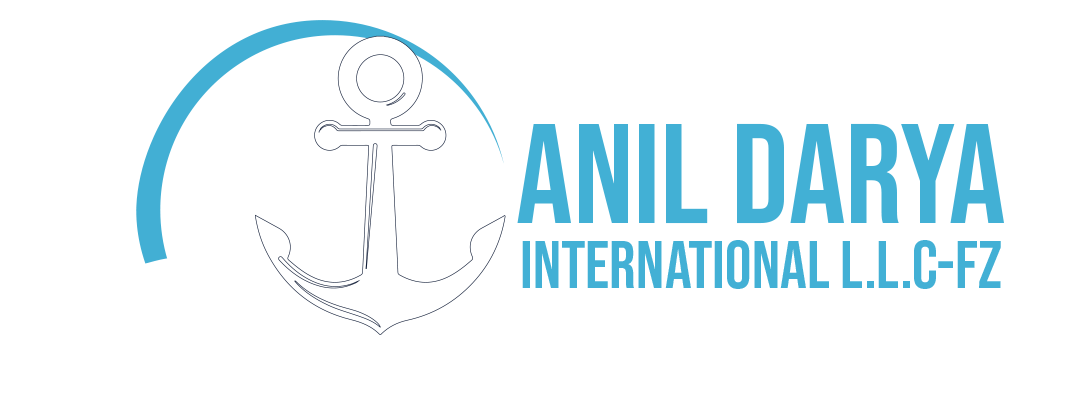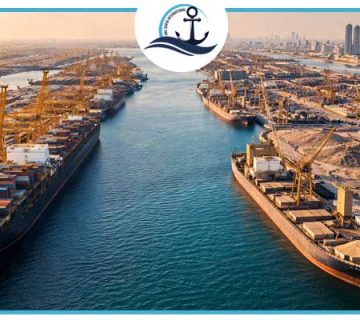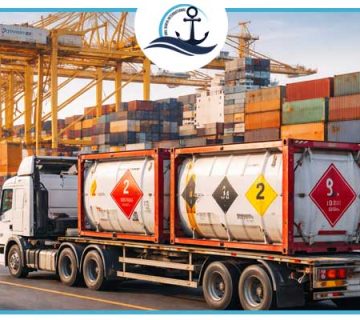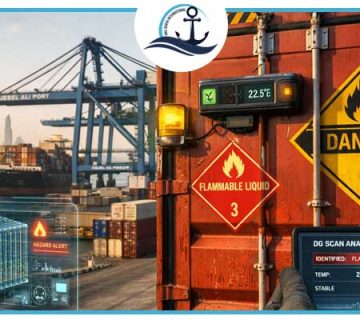|
Getting your Trinity Audio player ready...
|
How Technology & IoT Are Transforming Freight Tracking in Dubai Logistics
Dubai has long been a global hub for trade and transportation, but in recent years, the city’s logistics sector has entered a new era — one defined by technology, data, and intelligent connectivity. The rise of IoT-based freight tracking systems has revolutionized how cargo is monitored across sea, air, and land routes. From the bustling docks of Jebel Ali Port to Dubai International Airport’s cargo terminals, technology is reshaping efficiency, transparency, and reliability in every layer of supply chain operations.
The Digital Shift in Dubai Freight Tracking
A decade ago, tracking shipments depended heavily on manual updates and paper-based documentation. Today, Dubai freight tracking has become a real-time, data-driven process thanks to IoT sensors, cloud-based platforms, and satellite integration. Each container or pallet can now transmit its exact position, temperature, humidity, and shock data to logistics control centers instantly.
This transition aligns perfectly with Dubai’s Smart Logistics Strategy, which encourages innovation and automation across ports and free zones. For logistics companies like Anil Darya Shipping, which handle both general cargo and specialized segments like dangerous goods and break bulk shipments, adopting these technologies means more control, fewer delays, and better compliance with international standards.
Key benefits of digital freight tracking include:
- Real-time visibility and location updates
- Reduced paperwork and human error
- Automated alerts for temperature or handling issues
- Seamless data integration between shippers and customs
- Faster decision-making and improved customer communication
IoT’s Impact on Freight Visibility and Security
The Internet of Things (IoT) allows every shipment to “talk” to its handlers. Tiny GPS-enabled sensors transmit live data about the cargo’s location and condition throughout its journey. In Dubai, where high-value goods and hazardous materials move daily through Jebel Ali and Dubai South, this real-time visibility is more than convenience — it’s a safety imperative.
Imagine a container of temperature-sensitive chemicals or battery cargo classified under DG regulations. With IoT tracking, anomalies like temperature spikes or unauthorized door openings can trigger immediate alerts, enabling corrective action before incidents occur. For companies specializing in dangerous goods handling, such as Anil Darya Shipping, these solutions ensure compliance with IMDG, IATA, and UAE DG codes while safeguarding people, cargo, and environment.
How IoT enhances safety for DG shipments:
- Continuous temperature and vibration monitoring
- Alerts for unauthorized container access
- Automatic reporting to port safety systems
- Data logs supporting IMO and UAE compliance
Integration with Dubai’s Smart Infrastructure
Dubai’s commitment to becoming a smart city extends deep into logistics. The Dubai Trade Portal, DP World’s CARGOES Flow, and customs systems like Mirsal 2 already integrate IoT data streams to simplify customs clearance and cargo release. This makes the city a leader in IoT shipping in the UAE, where freight tracking is no longer just about visibility — it’s part of a connected ecosystem linking shipping lines, forwarders, customs, and clients.
Furthermore, predictive analytics powered by AI enables companies to estimate arrival times more accurately, reducing demurrage costs and optimizing warehouse planning. This aligns with ongoing digital initiatives across Jebel Ali Port that promote sustainable, smart logistics in Dubai.
From Bulk to Break Bulk: Tracking Beyond Containers
IoT isn’t limited to containerized cargo. For bulk and break bulk shipments, where each piece of cargo may differ in shape, weight, and handling needs, IoT plays an equally vital role. By tagging individual cargo units with smart trackers, operators can monitor their exact handling location within the port, reducing misplacement risks and optimizing crane operations.
Companies like Anil Darya Shipping, known for handling bulk and break bulk cargoes from Dubai to Asia and Europe, have integrated sensor-based monitoring to maintain safety and efficiency — especially when transporting heavy machinery, construction materials, or project cargo that doesn’t fit into standard containers.
Applications of IoT in bulk and break bulk logistics:
GPS-enabled tracking for non-containerized items
Weight and balance sensors for heavy lifts
Real-time crane operation feedback
Damage detection and handling reports
(related topic: Break Bulk Handling Best Practices for Ports in the UAE)
Air Freight and Real-Time Data Exchange
The transformation isn’t limited to sea freight. Dubai’s air freight network, centered around DXB and DWC airports, now relies on digital tracking powered by IoT sensors and blockchain-linked documentation. For high-value shipments — from pharmaceuticals to electronics — data accuracy is critical. IoT-enabled air freight systems now provide real-time condition reports, minimizing loss and ensuring compliance with strict IATA standards.
IoT-driven improvements in air freight:
- Continuous environmental condition monitoring
- Blockchain-secured documentation for transparency
- Predictive analytics for flight and cargo timing
- Faster customs pre-clearance and delivery coordination
This new era of smart logistics in Dubai blends technology and transparency, giving freight forwarders a competitive edge in international markets. For instance, Anil Darya Shipping offers integrated sea-air logistics solutions that combine real-time visibility with reliability, appealing to clients seeking faster delivery without compromising safety.
Enhancing Dangerous Goods Compliance
Handling dangerous goods (DG) requires not just expertise but precision monitoring. IoT tracking helps ensure that hazardous shipments comply with IMO and UAE DG regulations throughout transit. From identifying segregation zones at ports to verifying container temperature levels, IoT provides an automated safety layer that reduces human error.
Anil Darya Shipping — one of Dubai’s DG-certified forwarders — uses advanced tracking systems to manage chemical, flammable, and lithium battery shipments. These technologies enable their team to offer clients complete transparency while ensuring full compliance with the latest IMO 2025 and UAE DG Code requirements.
(related topic: New IMO & UAE Regulations for Hazardous Cargo: What Shippers in Dubai Must Know)
Sustainability Through Smart Technology
Beyond efficiency, IoT contributes to environmental sustainability. Smart tracking systems analyze fuel usage, idle times, and route optimization to minimize emissions — a key step toward green shipping strategies in Dubai. The data collected helps logistics planners make eco-conscious decisions, such as selecting low-carbon routes or combining shipments to reduce empty returns.
How IoT supports sustainable logistics:
- Optimized routes and reduced fuel waste
- Lower CO₂ emissions through better fleet management
- Predictive maintenance to extend equipment life
- Integration with Dubai’s green logistics initiatives
These practices echo Dubai’s broader sustainability goals and align with companies like Anil Darya Shipping, which promote eco-friendly freight solutions and compliance with global green logistics standards.
(related topic: Green Shipping Strategies in Dubai: Fuel, Emissions, and Sustainable Logistics)
The Human Factor: Data, Decisions, and Customer Trust
While automation drives logistics efficiency, the human element remains essential. Technology empowers professionals — it doesn’t replace them. IoT-driven freight tracking gives logistics teams the data they need to make informed, proactive decisions. Real-time dashboards, route deviation alerts, and predictive analytics improve customer communication and reduce operational risks.
Human-driven value in smart logistics:
- Data interpretation and decision-making
- Client communication and transparency
- Safety oversight for critical cargoes
- Customization of solutions per client need
For clients, this means fewer “Where is my cargo?” inquiries and more confidence in service reliability. Whether it’s a bulk cargo to Asia, break bulk delivery to Europe, or dangerous goods shipment through Jebel Ali, the integration of IoT builds transparency — a trait increasingly valued by international shippers.
The Future of Smart Logistics in Dubai
Looking ahead, Dubai is poised to integrate 5G networks, AI-assisted routing, and blockchain-secured documentation across its logistics ecosystem. The result will be fully smart logistics infrastructure, where every vessel, truck, and cargo pallet is digitally connected from port to warehouse to customer.
Anil Darya International L.L.C-FZ continues to invest in these technologies to ensure its clients enjoy real-time control, faster customs clearance, and data-driven efficiency. As global supply chains evolve, Dubai stands at the forefront of logistics innovation — bridging technology, trade, and trust.
If your business depends on reliable cargo movement through Dubai, it’s time to embrace smarter logistics.
FAQs: Technology & IoT in Dubai Freight Tracking
IoT freight tracking uses smart sensors and connectivity to monitor shipments in real time, providing location, temperature, and status updates throughout the logistics process.
Dubai integrates IoT through smart ports, customs platforms like Mirsal 2, and AI-enabled route optimization to create a fully digital freight ecosystem.
Yes. IoT sensors are vital for monitoring hazardous cargo conditions, ensuring compliance with IMO and UAE DG regulations.
It offers real-time visibility for high-value goods, helps prevent temperature excursions, and enhances traceability for regulatory compliance.
Yes. Even for non-containerized cargo, IoT reduces handling errors and loss, leading to lower operational costs over time.
IoT optimizes routes, reduces idle times, and cuts fuel use — all of which support Dubai’s green shipping initiatives.
Their expertise in dangerous goods, bulk, and break bulk handling combined with real-time IoT tracking and compliance systems ensures seamless operations.
Absolutely. Sensors detect unauthorized openings or route deviations and alert operators immediately.
Pharmaceuticals, chemicals, electronics, and automotive sectors benefit the most due to the need for real-time monitoring.
Simply contact Anil Darya Shipping to learn how tailored IoT tracking systems can optimize your freight movement in and out of Dubai.



